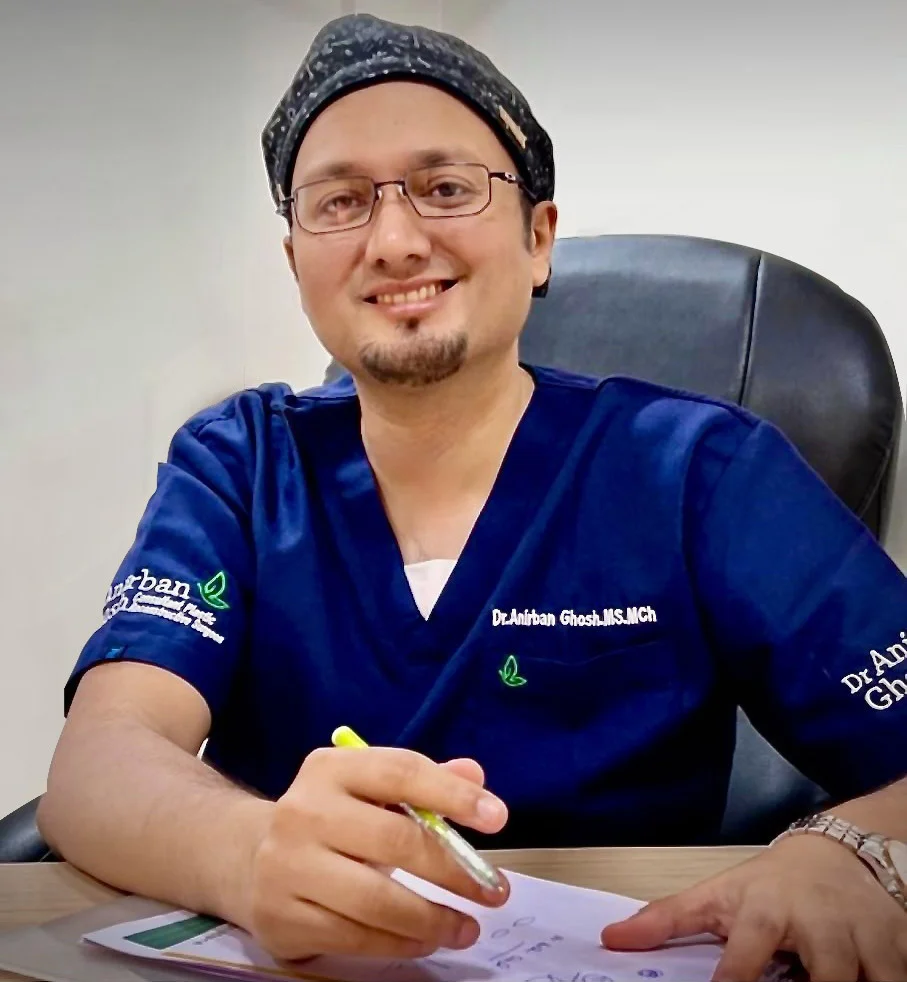Botox Treatment
Plastic Surgeon in Kolkata
Botox Treatment In Kolkata
What is Botox Treatment?
Botox is a type of neurotoxin called botulinum toxin. When injected into specific muscles, it blocks nerve signals, preventing the muscles from contracting. This effect is used for both cosmetic and medical purposes.
- Reduces horizontal lines on the forehead
- Minimises the appearance of wrinkles around the eyes
- Lessens wrinkles on the nose
- Softens a square jawline
- Improves the appearance of a dimpled chin
Diagnosis and Procedure of Botox Treatment
Diagnosis
The consultation process at our botox treatment clinic in Kolkata involves the following.
Medical history: Our doctor will review your medical history to ensure Botox is safe for you.
Facial assessment: The area to be treated is examined to determine the appropriate injection points.
Discussion of expectations: Your desired outcome is discussed to personalise the treatment accordingly.
While there is no formal diagnosis, the consultation process helps ensure that Botox is the right treatment for you and that it’s administered safely and effectively.
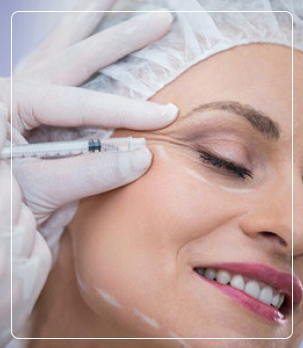
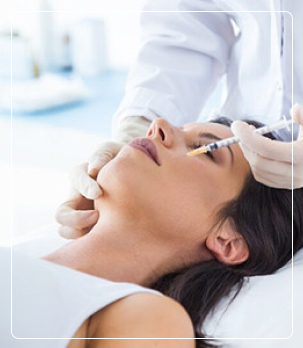
Procedure
The Botox procedure is relatively simple. The steps include:
Preparation: The treatment area is cleaned with an antiseptic solution.
Injection: Using a fine needle, small amounts of Botox are injected into specific muscles by Dr Anirban Ghosh, a renowned Botox treatment doctor. The process is usually quick and minimally invasive.
Ice pack: An ice pack may be applied to the treated area to reduce swelling.
When is Botox Treatment Recommended?
Botox is primarily used for two main purposes: cosmetic and medical.
It’s particularly well-suited for those with:
Wrinkle reduction: Botox for the face is highly effective in smoothing out dynamic wrinkles, such as those between the eyebrows (frown lines), forehead lines, and crow’s feet.
Facial contouring: In some cases, Botox can be used to subtly alter facial features, such as lifting the brow or narrowing the jawline.

Medical Uses
Chronic migraines: Botox injections can help reduce the frequency and severity of chronic migraines.
Excessive sweating (hyperhidrosis): Botox can be used to block nerve signals to sweat glands, reducing excessive sweating.
Muscle spasms: In certain conditions, Botox can relax overactive muscles.
Other medical conditions: Botox has also been used to treat conditions like overactive bladder and lazy eye.
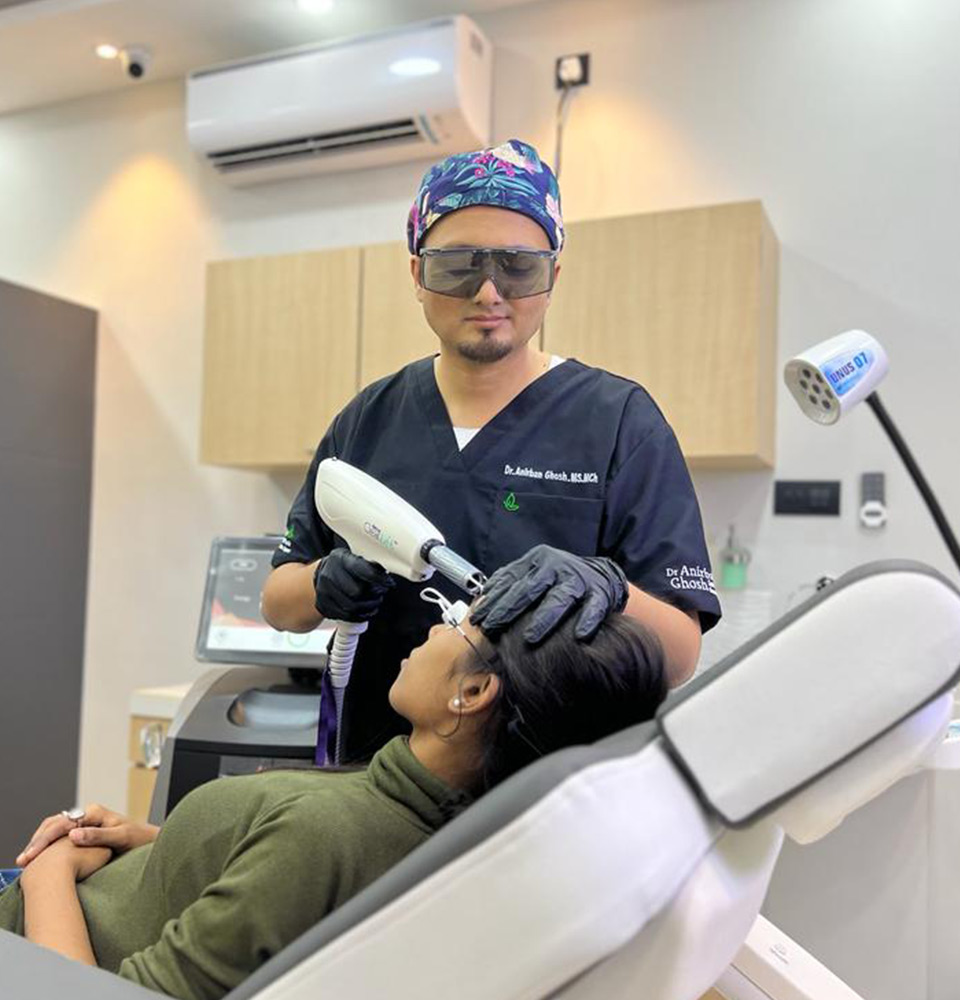
How to Prepare for Botox Treatment?
Proper preparation can enhance the results of your Botox treatment. Here are some tips:
Medical history: Be prepared to talk about your medical history with our doctor including any allergies or medications you are taking.
Avoid blood thinners: Stop using blood thinners like aspirin or ibuprofen for a few days before the treatment.
Clear skin: Wash your face gently before the appointment with our doctor to remove any makeup or dirt.
Plan your schedule: Allow some time for the treatment and potential downtime afterward.
Benefits of Botox Treatment
Botox skin treatment offers a range of benefits.
Improved facial contour: In some cases, Botox for skin can be used to subtly enhance facial features.
Pain relief: For conditions like chronic migraines, Botox can provide significant pain relief.
Reduced sweating: Excessive sweating can be managed effectively with Botox on the forehead.
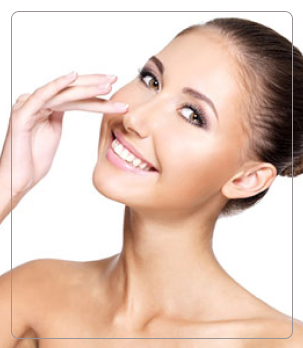
Recovery after Botox Treatment
Some recovery tips after botox treatment are as follows.
Ice packs: Applying ice packs to the injection sites can help reduce swelling and discomfort.
Avoid touching: Refrain from touching the treated area for at least 24 hours to prevent the Botox from spreading.
Upright posture: Stay upright for several hours after the treatment to minimise the risk of Botox spreading.
Gentle cleansing: Use a mild cleanser to clean the area, avoiding harsh scrubbing.
First Few Days:
Avoid strenuous activity: While you can resume most activities, avoid intense workouts or activities that cause excessive sweating for 24-48 hours.
Sun protection: Shield your face from direct sunlight to prevent potential pigmentation changes.
Over-the-counter pain relievers: If you experience discomfort, over-the-counter pain relievers like ibuprofen can be used.
Hydration: Staying hydrated can help support skin health and the recovery process.
Frequently Asked Questions (FAQs)
1. How does Botox work?
2. Where can Botox be injected?
3. Can Botox cause headaches?
Some patients may experience temporary headaches after treatment.

